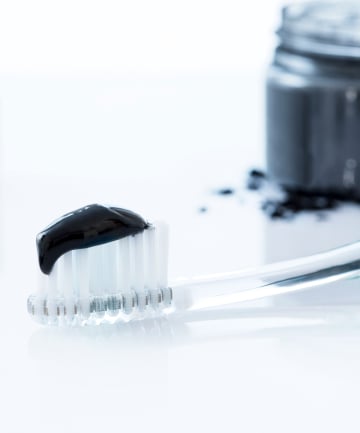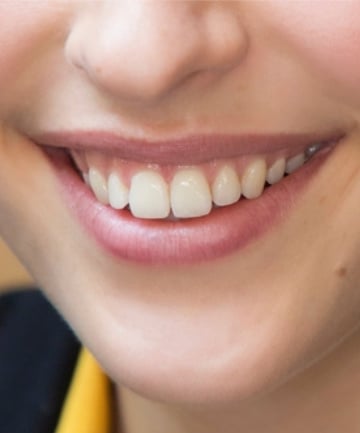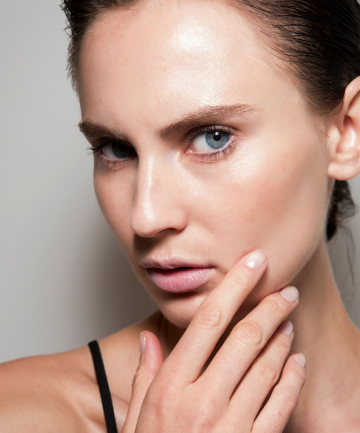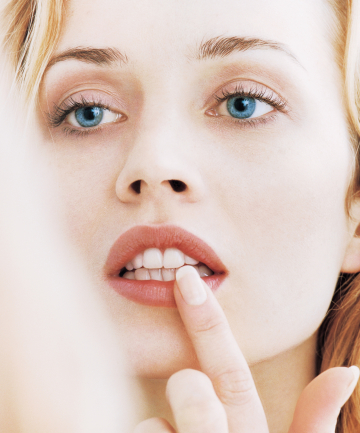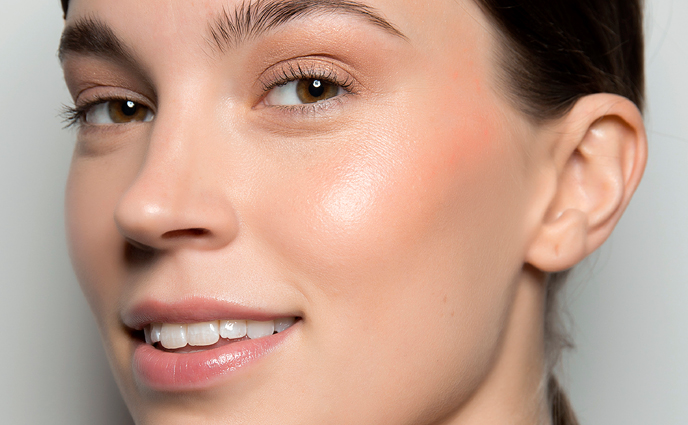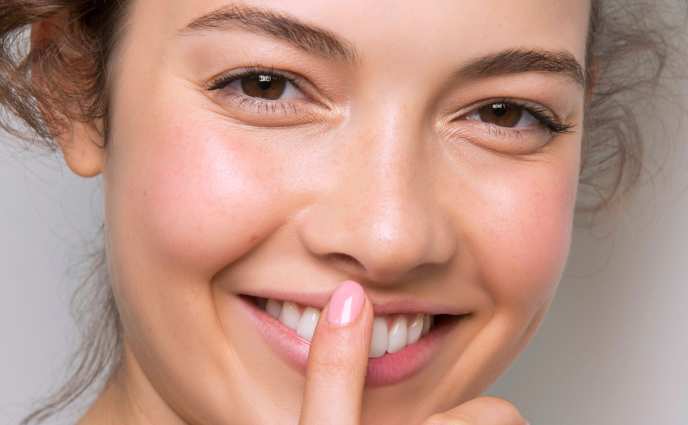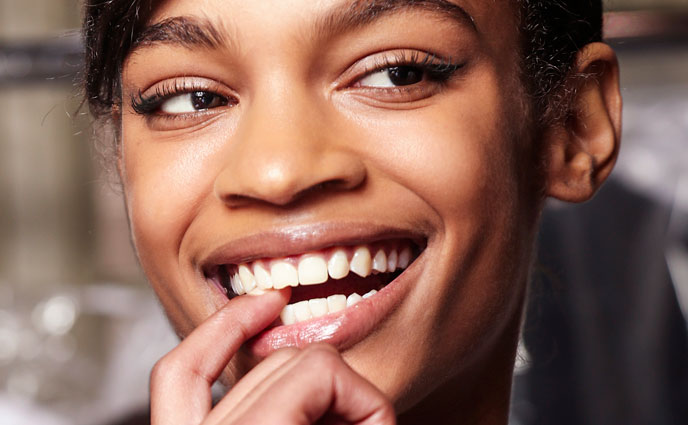Teeth whitening is all the rage lately — and so is charcoal toothpaste. The latter claims to be a natural solution for brighter, whiter teeth... but does it actually work? And if so, how? We're answering all of your charcoal toothpaste questions today; from "what is activated charcoal, anyway?" to "but is it actually safe for my teeth?" Read on!
Image via Imaxtree
Image via Imaxtree
The type of charcoal you find in the toothpaste is made of natural materials like wood and coconut shells that have been slow-burned. To make activated charcoal — which is often used in water filters and now, toothpaste — they heat this charcoal in the presence of gas, which causes it to become more porous. In this state, activated charcoal is great at absorbing toxins, theoretically like stains, bacteria, and other nasties that we want off of our teeth. (Don't worry — your mouth won't taste like you've been eating barbeque; most are fresh and minty flavored.)
Image via SCIENCE PHOTO LIBRARY/Getty
Image via SCIENCE PHOTO LIBRARY/Getty
Charcoal has been used forever to clean teeth — though while the ancient Romans may have started the trend, it's buzzier than ever right now. Brushing with activated charcoal can help with bad breath by absorbing the bacteria that causes it. It's gritty, like baking soda, so it can also be used to buff the surfaces of your teeth, to literally polish them.
Image via Imaxtree
Image via Imaxtree
Sugar and bacteria in your mouth make it acidic, and charcoal can work to keep pH levels more balanced, which in turn makes it more difficult for the bacteria to proliferate — so in that sense, it's detoxifying. But most dentists say it's not much better than any other toothpaste in this regard.
Image via Imaxtree
Image via Imaxtree
Some studies say that charcoal toothpaste may not be the best choice, as it doesn't help protect against tooth decay. To that end, most dentists recommend fluoride, and many of the natural kinds of toothpaste that use charcoal don't have it.
Charcoal is abrasive and could wear down the enamel, so don't use it every day without talking to your dentist. You're also going to want to make sure to use a very fine charcoal (in other words, you don't want to essentially sandpaper your enamel away).
Image via Pando Hall/Getty
Charcoal is abrasive and could wear down the enamel, so don't use it every day without talking to your dentist. You're also going to want to make sure to use a very fine charcoal (in other words, you don't want to essentially sandpaper your enamel away).
Image via Pando Hall/Getty



